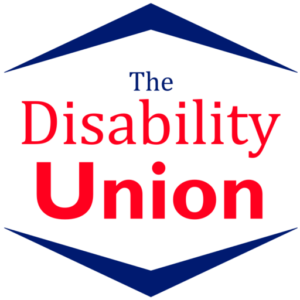Comment bt Avril Coelho
It was late March 2020 and whilst recovering from contusions, lacerations and an eye fracture following a seizure I heard that the panic buying we had experienced at work was due to a pandemic and a Councillor briefing I’d attended confirmed it was COVID-19; yet the PM had only just announced that a national lockdown was coming. I wasn’t able to get out and if I could I couldn’t drive due to epilepsy to buy enough essentials and long-life products. Supermarket shelves had emptied every day prior to my seizure when I was at work.
I had serious worries due to severe asthma that resulted in chest infections every year and that meant going to the hospital and being given an ECG, chest x-ray, and nebuliser and sent home with steroid tablets, antibiotics, and painkillers. My sister advised that I’d get a shielding letter soon but one never arrived. I checked the Government website which listed severe asthma as clinically extremely vulnerable and so we had to contact our GP on the last Monday in March. I was told by my GP surgery that the Asthma UK website which listed my inhaler and dosage also confirmed that I should have received an NHS letter and they didn’t understand why many patients who should have received one hadn’t. They provided one and I shielded until 1st August.
Initially, I struggled to get food in due to online delivery slots at all supermarkets being taken (some until July) and I was unable to register with my usual supermarket for weeks despite their pledge to prioritise those registered with the Government and NHS as disabled and shielding.
Just before the 1st of August my employer wrote advising that to stay safe for longer I could sign off sick due to COVID-19 shielding, use SSP or annual leave to remain safe. I used five weeks of sick leave and then lots of annual leave before returning to work. I was fearful of catching COVID-19 as I had read the Disparity Review and Channel 4 had just unveiled that the Government wasn’t openly admitting about BAME susceptibility, which affects me.
In October I returned to work. We had started selling hand sanitiser, there was a one-way system and a maximum customer capacity based on the square metres of the sales floor. People weren’t sanitising and were handling products that they didn’t then buy, potentially contaminating them for others or staff. I couldn’t wear latex gloves due to my pompholyx eczema and we couldn’t get talc lined ones even from my chemist. There were COVID-19 rules constantly being updated, extra cleaning measures, and routines, and we had to manage customers who keep ignoring signs and who didn’t give others or staff members 2 meters of space.
Customers claimed that they couldn’t hear us, blaming masks, but I’m masked exempt and they can see my mouth through the transparent face shield. I spent months receiving weekly statistics for Councillors on the case numbers and deaths, working in fear as we went from tier three to four then into second and third lockdowns. Yet I didn’t receive a shielding letter. (This time the DWP was meant to issue them) and my employer wouldn’t accept an NHS letter, so I was forced to work or starve with nobody else to pay my bills and buy food as I live alone.
Severe asthma is vaccine priority four but the GP said I’d be priority six, epilepsy is priority six and so I had to prove it. I was relieved to get my first vaccine despite the delay to priority six.
In conclusion, the Government could have prepared sooner. Supermarkets could have used the data they claimed to have accessed by getting the NHS or Government to proactively provide a consent tick box for supermarkets to contact those required to shield to ensure that we could order online and book delivery. GP practices should have provided a list of all known shielding patients who the NHS missed out on when sending these letters and texts. This same data should have been used for subsequent lockdowns to keep the most susceptible safe and the DWP should have had this same information rather than only contact those it knew about. The NHS App needs accuracy improvements. An inquiry into the failings to notify those most at risk to shield and those who have worked with those who tested positive for COVID-19 to isolate is essential in preparation for any future pandemic. It needs to be undertaken without delay and with transparency. A compensation scheme must be set up for victims of long-COVID where these could have been prevented by a different course of action.



